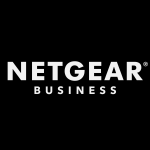What is our primary use case?
The solution is used for site-to-site VPN, and it can also be used as a router as a CPE. So, we normally give them the solution so that their NetLog and everything can be captured in the server because, ultimately, it is a requirement of the Department of Telecommunication in our country. For all the leased line users, we are supposed to keep the NetLog. MikroTik is mainly used by some SMEs, and more specifically, it is for SME clients only.
How has it helped my organization?
Users of the solution are able to save a lot of things on bandwidth, like, earlier, if they don't have anything to granularize the bandwidth for their end customer. In that case, it was difficult to manage. But, after putting MikroTik in place, they were able to control the use of their internal cost internal users. Also, they are able to manage multiple bandwidth sources using MikroTik.
What is most valuable?
Load balancing is one of the valuable features of the solution. The best thing, from an end-user perspective, is the GUI, which MikroTik provides vis-a-vis any other routing options. In short, MikroTik provides a very user-friendly GUI option.
What needs improvement?
The solution needs to be more robust. In case of power fluctuations, MikroTik routers are more vulnerable to malfunctioning. Also, there is an IPDR requirement to which MikroTik does not provide any information when it is used as a NAS, and it has to pass the parameter to the radius, so for a delegated IPv6 Prefix, MikroTik doesn't give any information to the radius. So there, they need to work on something, and they also need to work on IPDR logs using NetFlow.
In the future, I would like to see some more entry-level products with at least two SFP ports. What we normally face is we put the fiber on the ring, but there are no entry-level MikroTik products with two SFP ports inside. Normally, it has four or five copper ports and one SFP only. We need two SFPs to have the proper fiber ring sort of redundancy, which is the need of the hour for MSMEs.
For how long have I used the solution?
I have been using MikroTik Routers and Switches for more than fifteen years. My company is an ISP. We also have a company offering the solution to government agencies and intermediaries. Also, I am working with MikroTik Routers and Switches Version 7 x.
What do I think about the stability of the solution?
Personally, we have Huawei as our core router. Compared to Cisco or Huawei, MikroTik is not that reliable, and I would say that without any hesitation.
How are customer service and support?
In India, if you need technical support for MikroTik, there is no official channel partner or anybody who can help you out. Suppose there is anything that is, like, a support, where somebody can open a support ticket and get help. That will probably improve the performance of MikroTik, especially with SMEs where there is no talent available at every office.
Which solution did I use previously and why did I switch?
In comparison with Huawei or Cisco products, MikroTik offers excellent prices and performance, along with probably the easiest GUI. So, these are the two best USPs of MikroTik, and I will give two thumbs up to them. Now, let MikroTik come out with a more robust mechanism. Also, they need to put in some better power equipment. Apart from that, MikroTik's availability is always a questionable issue because many times, certain models are not available in our country, maybe because of that disturbance of the supply chain, in that pandemic situation, or maybe something other than that. I would also like to highlight that from the 1st of July, all the products deployed in any of the license services deployed have to be MTCTE-certified and trusted telecom-certified products. So I request MikroTik's Indian channel to approach the appropriate authority. In case MikroTik needs any help, we can get them connected to the right people, but get it certified so that MikroTik's business prospects don't get hampered in the future.
How was the initial setup?
Our team is quite familiar with MikroTik with this many years of experience, so there is no such issue in terms of setup. But I would strongly recommend that MikroTik improves the quality of your power sources because there are a lot of cases which I have seen malfunctioning MikroTik in case of power fluctuations. Also, I think MikroTik needs to focus on some local support partners.
We are an ISP. So when we provide the connectivity to any MSME client, maybe a 20 MBPS or whatever. So we select an appropriate model to be deployed, which is pretty fine. Based on the availability, we put that model on their premises, and we connect it to our network. We also configure everything for them, and if they have another service provider, we also help them to configure that as well. There are cases where we have even had a customer configure their BGP as well. For those who have their own AS number, we have helped them to configure their BGP. Also, we have to integrate it all together.
Regarding the staff members to do the deployment and configuration, we have a kind of centralized thing. So if any help is required, we have some experts sitting at our place, and they can help since we already have around more than ten centers spread across the country. We are operating in four different states of this country. So anybody can call a NOC engineer and get it configured.
Regarding the time taken for deployment, it is almost a PnP technology, so it takes hardly ten minutes to configure. The best part, as I said, is the GUI of MikroTik.
Regarding the maintenance part, sometimes it gives some erratic behavior. That's the very key function. So we are unable to deploy it as our core router. I can give you an example where we have an augmentation point in Equinix in Mumbai. All our thirteen centers are connecting to Mumbai first. And from there, we have a couple of upstreams. So, we have three IX connectivities and a few PNIs. We have direct PNI with Google, Facebook, and a few others. However, in the aforementioned areas, we are still skeptical. Our entire team is skeptical about deploying the MikroTik as our core router because we need something more robust and more predictable. MikroTik has not been able to give that kind of confidence to our team even though we have been using it for the last fifteen years.
What other advice do I have?
We can always give a recommendation of the product to others, or if there is any help required, as community members, we can also help any small ISPs who are facing any issue. So we can always be there to help them out. We strongly recommend the solution to any small or medium-sized teams who want to start using it.
I haven't explored the switch much, but considering the routers, I rate the overall solution a seven and a half to eight out of ten, and to be more specific, I would go with an eight out of ten.
Disclosure: My company has a business relationship with this vendor other than being a customer. Integrator

















